Blogs » Society » Ukrainian Travel Agency Multipass’s Ad Is Kinda Racist, Very Dumb
Blogs » Society » Ukrainian Travel Agency Multipass’s Ad Is Kinda Racist, Very Dumb |
- Ukrainian Travel Agency Multipass’s Ad Is Kinda Racist, Very Dumb
- ‘How Stable is China?’ At The Asia Society: Rod MacFarquhar, Ian Johnson, Orville Schell
- Photo of the Day: Speed of light
- Lost in the Forest
- Ai Weiwei denies putting self in danger to raise value of his art
- Driver Utterly Loses Her Mind After Crashing Into Four-Year-Old And Mother
- This Is Why You Should Never Play Real-Life Frogger
- Grandmother Chops Off Eight-Month-Old Granddaughter’s Hands
- Champions of the gaokao
- Flood And Drought Co-Exist In China
- “Don’t write off cap-and-trade”
- Top Ten Search List (June 26)
- Just Three Buddies On The Beijing Subway
- Iranian film takes top honors at Shanghai International Film Fest
- Shanghai Metro tells sexily-dressed female passengers to expect harassment
- Studying In The Subway, On A Portable Desk
- Shanghai metro blames sexual harassment on women’s immodest clothing; netizens’ reaction
- Bicyclists Strewn Everywhere: One Car Kills Five [UPDATE]
- Eerie, Surreal Defector Drawings Of North Korean Concentration Camps
- China’s Space Bill
| Ukrainian Travel Agency Multipass’s Ad Is Kinda Racist, Very Dumb Posted: 26 Jun 2012 05:00 PM PDT Multipass is company that promotes travel to Asia, which means there's a chance I'll be seeing one of the above cretins here in Beijing. Oh, joy. Lots of folks are calling this ad, called "See Asia Like Asians Do," racist. Eh, I say. They have different standards for racism in Eastern Europe, as this year's Euro in Ukraine and Poland has taught us, so shouldn't we judge Multipass by its own standards? I don't know. But I do know that on the site Ads of the World, 99 people have voted on this, and it's currently doing a 1.9 out of 10. So… racist? Probably, but what does that matter? It's stupid, plain and simple. And that should be reason enough for them to fail miserably.
By the way, the fine print reads: IDEA: Make people experience Asia like Asians do. SOLUTION: We created outdoor campaign with titles, which can be read only if you screw your eyes in order to see the world as literally as Asians do. Wow. That is really stupid. I'm "screwing my eyes," and it doesn't work! Maybe it's because I have slanty chink eyes? Caucasian readers out there… help! |
| ‘How Stable is China?’ At The Asia Society: Rod MacFarquhar, Ian Johnson, Orville Schell Posted: 26 Jun 2012 04:11 PM PDT
Here's a summary of their discussion: Schell questioned whether this legitimacy has a "shelf life," suggesting that things may be changing in the country today. According to MacFarquhar, today's China is craving civil society and reform, particularly since "it was opened in the past 30 years to the outside world more than it had ever been in 3000 years." As a Beijing-based journalist, Johnson observed, "the sense of social spirit is lacking. There is a lack of cohesive sense of society, or a cohesive sense of nation. It creates very siloed individual lives." He sees this spiritual hunger encouraging the growth of alternative education in some cities: "Parents are sending their children to Montessori schools because they believe that this creates a sense of cooperation." Here's a 7 minute video of highlights: And, here's the whole discussion itself: |
| Photo of the Day: Speed of light Posted: 26 Jun 2012 03:30 PM PDT  Want to see your picture appear here? Share your photos with us via Instagram or Flickr using the tag #shanghaiist! [ more › ] Want to see your picture appear here? Share your photos with us via Instagram or Flickr using the tag #shanghaiist! [ more › ]     |
| Posted: 24 Jun 2012 06:00 PM PDT
This posting includes an audio/video/photo media file: Download Now |
| Ai Weiwei denies putting self in danger to raise value of his art Posted: 26 Jun 2012 01:53 PM PDT |
| Driver Utterly Loses Her Mind After Crashing Into Four-Year-Old And Mother Posted: 26 Jun 2012 11:14 AM PDT I'll try my best to walk you through what happens here, with help from Yimeng Evening News's June 20 edition (story is pasted onto this Youku video, which appears after the jump, uploaded three days ago and currently with 1.3 million views). At 10:30 am on June 17, last Sunday, a woman surnamed Wang went out on her electric bike with her four-year-old daughter sitting on the back and her son riding a separate bike. They were heading east when, out of nowhere, a rapidly approaching car hit them head-on. By all accounts it was a horrific accident. The video picks up from here. The driver is apparently a university teacher, Zhang Yan, who works at the College of Shandong Provincial Medical College of Traditional Chinese Medicine. Her students say she teaches human anatomy, psychology and psychiatry, which is all very normal. What she did after she hit the mother and child, however, was anything but. First, Zhang is hysterical as a bloodied child is pulled from underneath a vehicle. Then, one hears someone from behind the camera say, "She's taken off all her clothes." The scene cuts, and then it gets really bizarre. We see someone — Zhang, it turns out — laying in front of an ambulance, blocking its advance. After the camera pans a couple of times, we see Zhang fling the clothes off her body (she has, indeed, already taken them off at least once). When a 60-year-old neighbor approaches her, according to Yimeng Evening News, she shouts, "I will kill you!" After the four-year-old girl is loaded into the ambulance, Zhang appears to get up and reach into the ambulance to pull her out. Why she does this is no longer the right question. She flings herself on the ground again, sans clothes. I can't speculate on the trauma a person's psyche suffers after witnessing a crowd pull a young girl, bloody and unconscious, from underneath a car. But it does seem reasonable to say, in this case, that that trauma caused Zhang to lose her mind, at least temporarily. UPDATE, 11:25 am: We're reminded of the case of Yao Jiaxin, who hit a pedestrian with his car in April 2011, then stabbed her to death when he realized she was copying his license plate number. He did it because he didn't want her to "blackmail" him for money (he would have paid for all her medical expenses, too). Just something to think about — could Zhang have subconsciously desired the little girl's death? We prefer to think she went insane. The most recent update, yesterday from Qilu (Shandong) Online, is that Zhang remains detained under criminal charges while an investigation is pending. Updates will follow, Qilu tells us. The four-year-old died at the hospital. Her mother remains in critical condition. (H/T Alicia) |
| This Is Why You Should Never Play Real-Life Frogger Posted: 26 Jun 2012 09:16 AM PDT This is not the first time within the last four months that someone playing real-life Frogger in China has been captured on video losing. In March, there was this (I added the music… it seemed appropriate at the time), in which a man sprinting across heavy traffic gets nailed by a van in the furthermost lane. Apparently that video wasn't enough of a deterrence, a clear message that real-life Frogger is a bad idea. In the above (on Youku after the jump for those in China), two kids in Changde, Hunan province, out of boredom, sprint across four lanes. Then they sprint back. They successfully cross the road a third time. And then, during the fourth attempt, it's game over for one of them. The boy, luckily, suffered no life-threatening injuries, though his broken hip will probably keep him from sprinting anywhere for a long while. |
| Grandmother Chops Off Eight-Month-Old Granddaughter’s Hands Posted: 26 Jun 2012 08:59 AM PDT Not sure why this news story exists, existentially speaking, but earlier today, Shenzhen Media Group reported that on Saturday, a grandmother in Jinan, Shandong province cut off the hands of her eight-month-old granddaughter before trying to commit suicide (she survived). What does one do with a story like this? The Daily Mail picked it up (the photo above is from its website), and reports that it's not known whether the baby's surgically reattached hands will ever properly function. This incident is currently one of the most searched-for items on Baidu, according to Baidu Beat, which tells us: "There are still no reports as to why or how this could have possibly happened, but netizens are wishing the baby a speedy recovery at the same time that they remain in utter disbelief regarding the grandmother's behavior. It is unclear whether this was on purpose, but as it is simultaneously unfathomable as an accident, the grandmother is being described as sick, twisted, and atrocious, among other things." I don't care to imagine what those "other things" are. (H/T Alicia) |
| Posted: 26 Jun 2012 10:17 AM PDT by Allison Carroll Goldman on June 26, 2012  The front page of the Southern Metro today is dedicated to the two "champions" of this year's gaokao for Hainan province. The gaokao is China's highly stressful national university entrance exam. It is given on a single day, once a year, and any student who misses it for any reason will have to wait another year to retake it. Often, gaokao results are the single deciding factor for whether or not a student will go to university, and if so, which one. It also determines what major they will be eligible for. The two "champions" for Hainan province this year are Zhou Yi, who achieved the highest results in science, and Cheng Lin Zhuang, who scored highest in liberal arts. Zhou Yi is an 18 year-old girl, born in the coastal city of Sanya. Her parents are teachers and she dreams of becoming a journalist, because "reporters have a sense of justice and responsibility to do something socially useful." Yet she plans to apply to programs in business administration or finance at universities in Hong Kong. Cheng Lin Zhuang is 19 years old. His parents work in a coconut processing plant and struggled to put him through school. Yet he loves books and dreams of attending Peking University, the top liberal arts school in the country. His motto is: "the power of faith will protect me." The article stresses that he is a balanced and well-adjusted young man with a keen interest in psychology. He is very organized in and focused. At the bottom of the front page, a tiny headline reads: "For heaven's sake, is she his mom?!" The article tells the very strange story of an unclaimed baby boy who was born without an anus and left at the hospital. A woman tried to claim him as her own, but didn't have his birth certificate. She says she gave birth at a tiny private clinic and lost the birth certificate. She was very upset to find her child was born with such a disability and cannot afford the surgery he will need. She says if it is too much trouble to try and claim him without the birth certificate, she will just give up. Links and Sources |
| Flood And Drought Co-Exist In China Posted: 26 Jun 2012 05:30 AM PDT Despite heavy seasonal rains causing floods and havoc across southern China, the north and parts of the center of the country still face severe drought. Officials have warned that crops are at risk on the North China Plain between the … Continue reading → |
| “Don’t write off cap-and-trade” Posted: 26 Jun 2012 01:44 AM PDT It's time to stop the hand-wringing over carbon markets, writes Robert Stavins. Low permit prices in Europe and America point to changing circumstances and fixable flaws – not the failure of an idea. Various journalists and advocates have, of late, described America's Regional Greenhouse Gas Initiative (RGGI) as being near "the brink of failure" thanks to the trend of very low prices of permits to emit carbon dioxide. Likewise, commentators have claimed that Europe's carbon market, the European Union Emission Trading Scheme (EU ETS), may be "sinking into oblivion" because its emissions allowances too have become very cheap. In a nutshell, then, the purpose and promise is to achieve the targeted level of overall pollution control, and, if the cap is binding, do this at the lowest possible cost. |
| Posted: 26 Jun 2012 02:52 AM PDT Here's the top ten real-time search list for today, recorded at 1:25PM. 1. 引产孕妇成卖国贼 yǐnchǎn yùnfù chéng màiguǒzéi – "Forced Abortion Mother Cast as Traitor": In a startling turn of events, rather than coming out to show support for Feng Jianmei after the traumatizing forced abortion of her seven month-old fetus at the hands of officials in Ankang, Shaanxi, a faction of townspeople has now turned against her and her family, parading through the streets with banners bearing venomous slogans which call for the family's expulsion from town and accuse Feng's husband Deng Jiyuan of being an evil traitor for accepting interviews by the foreign media. The local government has also defamed the family in the local newspaper. Here's the story in Chinese and Here's a story in English. 2. 开天窗吸毒 kāitiānchuāng xīdú – "Open Skylight Drug Injection": On the eve of International Day Against Drug Abuse and Illicit Trafficking, a story about a 12 year-old boy nicknamed Little Chao—a recovering heroine addict in Chenzhou, Hunan—is all over the news. Little Chao's parents were both sent to prison when he was 8: the moment Chao, now in a rehabilitation center in Chenzhou, calls the "turning point" for him. After his grandparents (who were looking after him) died, he became involved with gangs. One day, his gang superiors administered his first heroine injection, and he soon became addicted. In and out of different gangs—aware that these were "bad people"—but unable to get away, Chao began taking the injections into his groin by age 12. This kind of injection of a drug into a main artery, referred to as "opening the skylight" (开天窗 kāitiānchuāng), can be lethal. Needless to say, Little Chao's story is shocking and upsetting to everyone. Here's the story in Chinese. 3. 8个月女婴被剁双手8 gè yuè nǚyīng bèi duò shuāngshǒu – Yesterday's news of a grandmother in Jinan, Shandong who chopped off the hands of her eight-month old baby granddaughter is still in the forefront of everyone's minds. There are still no reports as to why or how this could have possibly happened, but netizens are wishing the baby a speedy recovery at the same time that they remain in utter disbelief regarding the grandmother's behavior. It is unclear whether this was on purpose, but as it is simultaneously unfathomable as an accident, the grandmother is being described as sick, twisted, and atrocious, among other things. Here's the story in Chinese. 4. 散装粽子有肉虫 sǎnzhuāng zòngzi yǒu ròuchóng – "Bugs in the Zongzi": This past Saturday was the Dragon Boat Festival (端午节 duānwǔjié), a time when families nation-wide traditionally eat zongzi (粽子zòngzi). Zongzi are a special kind of dumpling made of glutinous rice, stuffed with different fillings, and wrapped in bamboo or reed leaves; as these goodies are extremely gooey on the inside, and therefore slightly precarious as far as textural grossness goes to begin with—it would be bad for zongzi-eater morale if anything were to actually go wrong. Alas, over the weekend one Beijing man was dismayed to find that the zongzi he had purchased in Haidian for his own family's celebration were in fact riddled with little bugs. After going back and forth with supermarket management, he has finally been compensated, 50 RMB. No grand milk scandal, but still, bugs in the zongzi, man. Here's the story in Chinese. 5. 上海地请女性自重 Shànghǎi dìtiě qǐng nǚxìng zìzhòng – "Shanghai Metro Tells Women to Behave Themselves": A controversial warning posted on the Shanghai Subway operator's Weibo page on June 20th which placed the blame of sexual harassment on women and their choice of dress continues to draw widespread attention. The latest development: two young women in protest of the announcement recently entered line 2 of the Shanghai subway with their heads covered in what looked like the top halves of burqas, and the rest of their bodies dressed in "sexy" clothes (less sexy, more like goofy references to the idea of sexy; namely, one of them wore a silver homage to the Madonna cone bra, but over a lose-fitting t-shirt). The two held signs printed with the battle cries "I want to stay cool in the summer, you cannot harass me for it" and "I can be flirty, you cannot harass." (The latter is a play on the word "harass" itself, or sāorǎo 骚扰; the first character, sāo, can denote flirtation when written by itself, and the second character, rǎo, still means "bother," or "harass." So her sign reads, "I can sao, but you can't rao!" Get it? Anyway.) This instance of performance art has been met with a mix of praise of the anonymous girls for standing up to the man and criticism of them for oversimplifying the issue, but at the very least public reaction to the Shanghai Metro's initial warning is still overwhelmingly negative. Here's the story in Chinese. 6. 为奶牛办丧事 wèi nǎiniú bàn sāngshì – "Funeral Arrangements for Milk Cows": In early September 2011, a video of Buddhist monks in Luohe, Henan performing funeral rites for dairy cows went viral. On the neck of a model cow hung a sign with the words "I was starved to death;" papers and incense were burned, deceased cattle mourned. The dairy company responsible for the funeral next issued a statement saying that twelve years ago, the provincial government gave it a 600,000 RMB subsidy for its 230 cows, but that the Zhaoling village government had intercepted and misappropriated all of the funds. The company claimed that after much back and forth, the village government only returned 300,000 RMB to the company. "70 cow-deaths and over 40 tons of spoiled milk later, the dairy farm was forced to close, unable to make its rent." After further investigation, however, it seems that the cow deaths were not in fact as many as the company reported, and that the cause of death was varied and not entirely related to the village government's withholding of funds. Furthermore, it turns out that the Zhaoling government did not withhold as much as was originally stated. Most netizens, however, are more concerned that there would be any relationship at all between corruption and bad milk in the first place. Here's the story in Chinese. 7. 毒驾入刑 dú jià rùxíng – Recently, cases of traffic accidents related to drug use in China have been on the rise, and Wang Junke, director of the narcotics division of the Guangdong Province Public Security Bureau, announced at a press conference yesterday that "the dangers of illegal drug use have been seriously underestimated in China, especially with regard to the relationship between intravenous drug use and the spread of AIDS." Wang called for a policy of "driving on drugs as a criminal offense" (dú jià rùxíng 毒驾入刑) as a way to crack down on harmful drug use and maintain traffic order and safety, signaling a zero tolerance policy not just for drunk driving but also for "drugged driving." Here's the story in Chinese. 8. 聚赌官员免职 jùdǔ guānyuán miǎnzhí – On the night of June 16th in Meizhou, Guangdong, eight officials, including the vice chairman and financial secretary of the county CPPCC, were arrested for gambling. 81,500 RMB in gambling money was seized, and the officials have all been removed from their posts. Netizens far and wide are expressing their…lack of surprise. Here's the story in Chinese. 9. 山东原副省长黄胜 Shāndōng yuán fù shěngzhǎng huángshèng – This past December, The Central Committee of the Communist Party decided to remove Huang Sheng, vice-governor of Shandong province, from his post. Huang was suspected of "severe violation of discipline." The obvious has now been stated: his "violations" include using his status to put friends in positions of power, accepting bribes, causing serious economic damage to the state, and moral turpitude. Here's the story in Chinese. |
| Just Three Buddies On The Beijing Subway Posted: 26 Jun 2012 03:05 AM PDT Should any of us experience this type of blithe, unadulterated joy while riding the subway, we should count ourselves lucky — or insane to have finally unyoked from the shells of prejudice and misunderstanding that trammel the great grand human social experience. May the world be as happy a place as depicted here, sans worry, promises made, promises kept. Image posted yesterday on Weibo by BeijingShi'r. |
| Iranian film takes top honors at Shanghai International Film Fest Posted: 26 Jun 2012 02:45 AM PDT  The 15th Annual Shanghai International Film Fest wrapped up this weekend with a final awards show at the Shanghai Grand Theater on Sunday. "Bear," an Iranian drama based on a true story about a couple suffering through war, beat 17 other films to earn the Golden Goblet Award for Best Feature Film. [ more › ] The 15th Annual Shanghai International Film Fest wrapped up this weekend with a final awards show at the Shanghai Grand Theater on Sunday. "Bear," an Iranian drama based on a true story about a couple suffering through war, beat 17 other films to earn the Golden Goblet Award for Best Feature Film. [ more › ]     |
| Shanghai Metro tells sexily-dressed female passengers to expect harassment Posted: 26 Jun 2012 01:07 AM PDT  Shanghai Metro generated a Weibo storm last week after warning women not to wear sexy outfits on the subway. Seriously. Weibo users were outraged after the official Weibo account of the Shanghai Metro posted a photo of a woman wearing a sheer dress on the platform and warned that sexual harassment would not be "unusual" for similarly dressed female passengers. The post garnered over 6,000 comments and 15,000 reblogs, many criticizing the transport agency for "sexist" remarks. [ more › ] Shanghai Metro generated a Weibo storm last week after warning women not to wear sexy outfits on the subway. Seriously. Weibo users were outraged after the official Weibo account of the Shanghai Metro posted a photo of a woman wearing a sheer dress on the platform and warned that sexual harassment would not be "unusual" for similarly dressed female passengers. The post garnered over 6,000 comments and 15,000 reblogs, many criticizing the transport agency for "sexist" remarks. [ more › ]     |
| Studying In The Subway, On A Portable Desk Posted: 26 Jun 2012 12:48 AM PDT It's unclear when this picture was taken, but it appeared on 王浩然vic's Weibo yesterday. Netizens have expressed bemusement. Why this young lady needs a desk to read is a question I'll not answer here. Instead, I'll point you to Helen Gao's recent article in The Atlantic about gaokao. One feels compelled to rip the desk away, tell the young lady, "Go play soccer!" But as Gao points out, "Education experts in China have debated the perks and flaws of the country's rote teaching style for years, but most students, comfortably immersed in a system that rewards and reinforces their ability to memorize and emulate instead of to analyze and question, might not as easily realize its limits from the inside." (H/T Alicia) |
| Shanghai metro blames sexual harassment on women’s immodest clothing; netizens’ reaction Posted: 25 Jun 2012 09:07 PM PDT Shanghai Metro has triggered a national debate over the root cause of numerous recent sexual harassments on the city's subway lines after its official microblog on Sina Weibo called on female passengers to dress appropriately. On the evening of June 20, Shanghai No.2 Metro Operation, uploaded to its official Sina Weibo account a picture of a young woman wearing a black see through dress waiting for the subway train, with her underwear clearly visible, and commented, "Riding the subway train while being dressed like this, no wonder some get harassed. There are just too many wolves on the subway lines to kill them all…Girls, have some self-respect!" The post immediately received a lot of flak for its sexist remark. Some netizens believe that whether to dress modestly or scantily is a matter of personal choice, and this gives no ground to anyone for sexual harassment. One Weibo user "大江Joe舅"said, if the law or the metro regulation does not prohibit her from getting dressed like that, then no one is entitled to lay the blame on her, "So according to your theory, it is okay that every man in the swimming pool takes liberties with women?" Another Weibo user "雪天放晴"was even more straightforward with her criticism of Shanghai Metro's message, "You are supposed to provide adequate safeguard to passengers. Don't shirk responsibly, and never make excuses for offenders!" However, many more netizens strongly agree with call. In a survey conducted by Sina Weibo, 30,661 out of 44,582 respondents, representing 68.8 percent, agree that women should know what they're doing when they dress provocatively, and be aware of the consequences of wearing certain types of clothing. "One should dress appropriately for the occasion in public. This is the basic common sense and ethic. So even this common sense is to be questioned? How absurd!" One net user wrote. He said that Shanghai No.2 Metro Operation's suggestion is well-meant, and there is no need for them to apologize. Another user "@机场站王必磊服务团队" also wrote, "Look at those young men and women nowadays, wearing Low-cut top, super mini skirt, see through clothing, to name just a few, which must have sent some people the wrong signal and make them spin a fantasy. So while we condemn offenders, should we also reflect on the signals we are sending with out clothing choices?" In response to the internet debate, two young women wearing black veils to mask their faces protested on Shanghai's subway Line 2 with signs that read, "I can be slutty, but you can't get dirty," "I want coolness, not sexual predators." Net user "一Buddy一"offered his full support to this protest. He said that if some people is going to get away with their statement that scantily clad women lure men into committing the crime, "The ultimate result would be that each woman will not be allowed to go out unless she wears extremely thick and conservative clothing. In a normal society, even if a person is walking naked on the street, you can call the police, but you can never assault her. This is common sense." In the past two months, multiple Shanghai metro riders reported falling victim to or witnessing sexual harassment. In additional to groping, a man was arrested on June 13 for masturbating and ejaculating onto a female passenger's leg on Shanghai's Line 1. A week later, a man was caught red-handed exposing his genitals to fellow riders. Some suggest that Shanghai offer women-only passenger cars during rush hours. But Shanghai's metro operation replied that the overcrowding during rush hours and the inadequate number of cars have rendered the suggestion impracticable. Besides, gropers on the subway lines account for only a tiny fraction of riders. The demand for women-only passenger cars is not that strong. |
| Bicyclists Strewn Everywhere: One Car Kills Five [UPDATE] Posted: 25 Jun 2012 09:41 PM PDT On Friday at around 2 pm, a 60-some-year-old driver in Yantai, Shandong province lost control of his car, veered onto the other side of the street and plowed into a team of about 20 cyclists from Jinan. Five died and at least three were injured. The aftermath, as you see in the above compilation by a user named "fox," is not pretty. Youku video (slightly longer) for those in China after the jump. You can also check out this, shot on a camera phone by someone in a bus (948,000 views so far). UPDATE, 8:49 pm: According to Qilu (Shandong) Evening Paper, the man was 69 years old and claimed he suffered from vertigo. As translated by chinaSMACK:
Also, he was driving a Lexus, if that matters to anyone. |
| Eerie, Surreal Defector Drawings Of North Korean Concentration Camps Posted: 25 Jun 2012 08:33 PM PDT If suffering is a wellspring for art, there are no greater artists currently living than defectors from North Korea. Witness: this forum, which has compiled drawings from survivors of the country's brutal concentration and work camps (more are sampled after the jump). The commenters over at Gawker have put China at the top of their dialogue on its post about these drawings. North Korea is a reality that no one — not even Chinese leaders — wants to acknowledge (unless its dear leader has just died). I'd say maybe it's time we do, but the reality of politics, unfortunately, is complicated and messy, often devoid of considerations such as "human rights." Gotta love the world we live in, right? Translated by Redditor ryanyang. |
| Posted: 25 Jun 2012 09:13 PM PDT China will have spent 39 billion yuan ($6.1 billion) on its manned space missions between the program's launch in 1992 and the end of next year, according to Wu Ping, a space program spokesman quoted in the Beijing Times. Half … Continue reading → |
| You are subscribed to email updates from Update » Blogs » Society To stop receiving these emails, you may unsubscribe now. | Email delivery powered by Google |
| Google Inc., 20 West Kinzie, Chicago IL USA 60610 | |

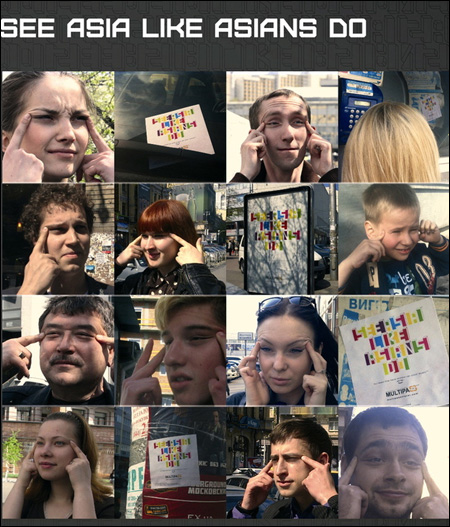
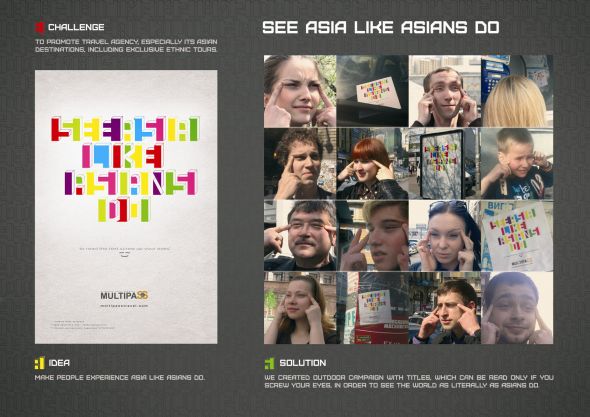
























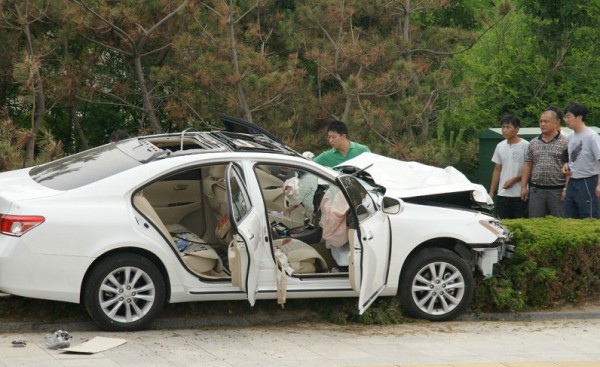
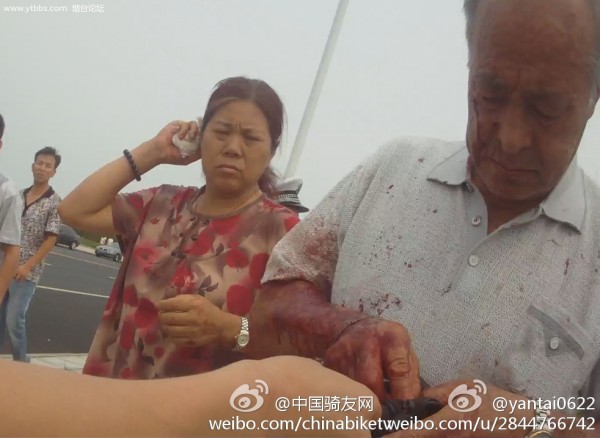
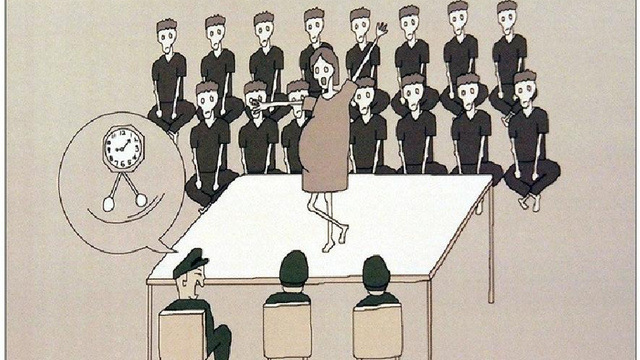
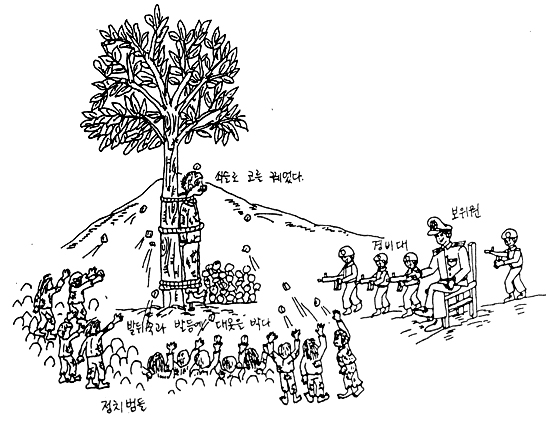
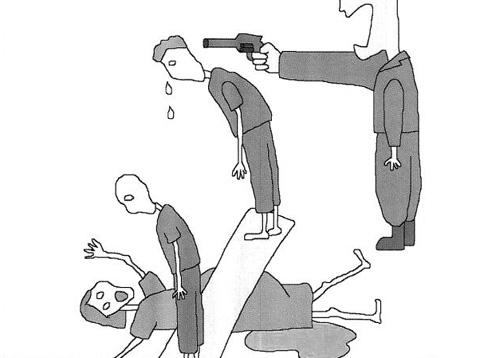
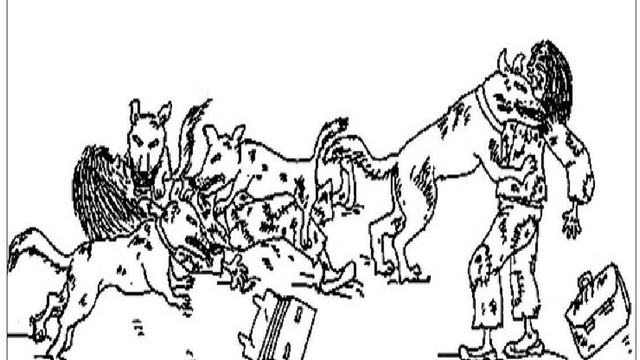
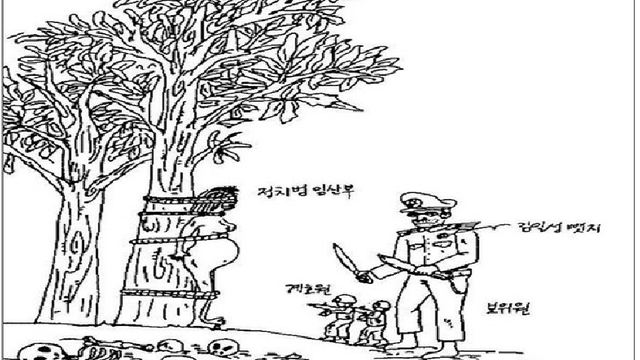
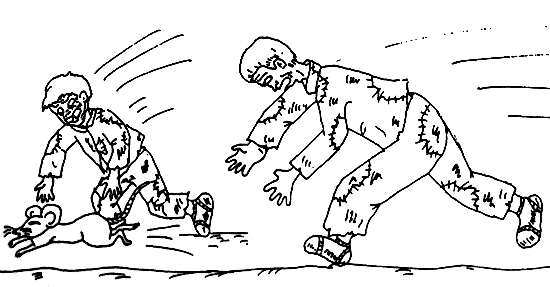
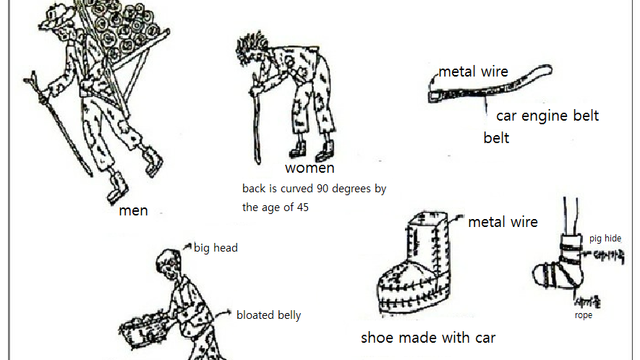
Comments